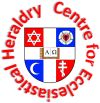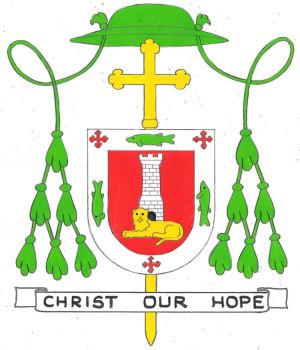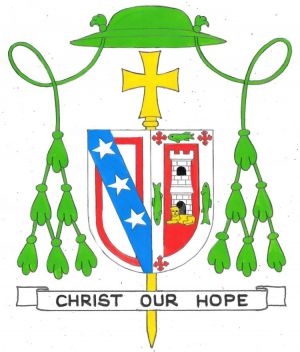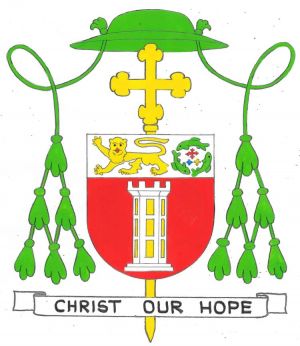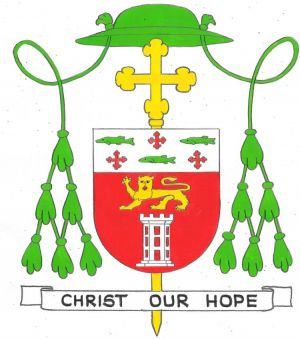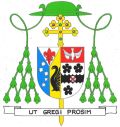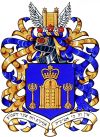Barry Christopher Knestout: Difference between revisions
Knorrepoes (talk | contribs) m (Text replacement - "{{media}} Literature :" to "'''Literature''': {{media}}") |
Knorrepoes (talk | contribs) m (Text replacement - "{{media}}" to "{{rel}} {{media}}") Tag: Reverted |
||
| Line 33: | Line 33: | ||
[[Heraldic literature - Ecclesiastical heraldry|'''Literature''']]: | [[Heraldic literature - Ecclesiastical heraldry|'''Literature''']]: | ||
{{rel}} | |||
{{media}} https://exarandorum.wordpress.com/, 2018 | {{media}} https://exarandorum.wordpress.com/, 2018 | ||
[[Category:Roman Catholic bishops|Knestout]] | [[Category:Roman Catholic bishops|Knestout]] | ||
Revision as of 08:23, 26 December 2022
Religious or Ecclesiastical heraldry portal
This page is part of the Ecclesiastical heraldry portal |
Heraldry of the World |
|
Catholic heraldry
|
Other Christian churches Other religions
|
BARRY CHRISTOPHER KNESTOUT
Born : June 11, 1962
Deceased :
Auxiliary Bishop of Washington, 2008-2017
Bishop of Richmond, 2018-present
| Auxiliary Bishop of Washington |
Bishop of |
Official blazon
Origin/meaning
As common in US episcopal heraldry, the arms show the arms of the diocese impaled with the personal arms of the bishop.
While Bishop Knestout was always rather clear on what charges (individual elements) he wished to employ on his coat of arms the composition of the design went through various changes until he finally settled on the arms shown above. He always intended to pay homage to the Ordinary he would serve under as Auxiliary Bishop, Cardinal Donald William Wuerl, by using the single charge in the cardinal's own arms; a tower. In addition, Bishop Knestout wanted very much to honor the previous Archbishops of Washington whom he served for many years as private secretary, Cardinal James Aloysius Hickey, and Cardinal Theodore Edgar McCarrick. From their respective arms he borrowed a lion. In addition, the bishop wished to include symbols alluding to his ancestry and his native state of Maryland. This was accomplished with the other charges and the choice of tinctures and metals to be employed.
This resulted first the two proposals shown below:
Finally, another decision was made to surround the field with a bordure rather than use a chief for the Maryland symbols.
The achievement is completed with the heraldic insignia of a prelate of the rank of bishop by instruction of the Holy See, of March 1969, confirmed in March 2001.
This page is part of the Ecclesiastical heraldry portal
|
Catholic heraldry
|
Other Christian churches |
|
Contact and Support
Partners:
Your logo here ?
Contact us
© since 1995, Heraldry of the World, Ralf Hartemink 
Index of the site https://exarandorum.wordpress.com/, 2018
